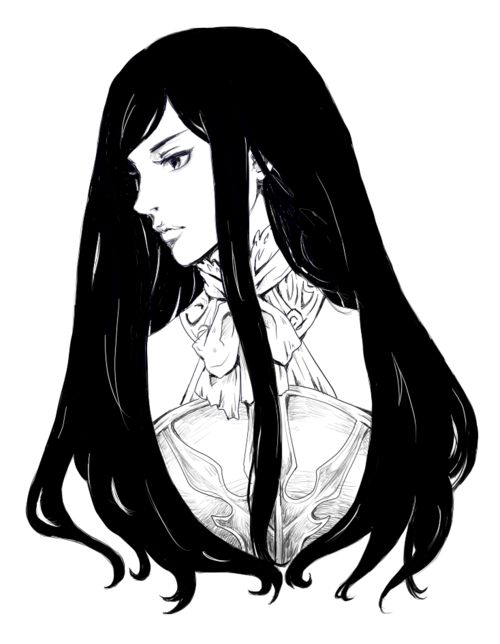The kitchen Qadim was in used to be busy all day long, full of servants moving about and dishes clattering. The Baltil dishes that were immaculate compared to the rest of the room were used only for special occasions, though the other sets likely were just as elegant in their prime. The delicate porcelain was a wedding gift bought by the master of the house for his late wife. He spared no expense for her… The kitchen door leading to the dining hall was not locked fortunately, though that area was in no better state. The dining table was still present, the tablecloth still set, and the silverware arranged. Cobwebs hung over it all like a shroud, and the chairs of exquisite hardwood and gold were in place. Lining the sides of the dining hall were a series of tall floor-length windows with drapes drawn. The atmosphere was undoubtedly eerie, and completely silent. But if one listened closely, there was a tinkling of metal or glass that would fade away when one came to investigate.
The chairs set at the tableside had their cushions severely degraded, save for a few seats. The seat at the table's head where the lord would sit, the seat where the lord's lady would sit, and another seat down the length of the table. That last chair was slightly smaller than the other two. These three seats were all completely clean, however the chair which the lady of the house sat in had its upholstery torn up with a surprisingly new knife embedded in the backrest. Whoever had done this clearly did so out of spite or an intense hatred. Even the wood bore nicks and scratches unlike the others. The only good thing about this was the knife was clean–clean of blood or anything unsavory. In the kitchen all the other dishes save for the Baltil dinner set were either chipped, cracked, or broken. If this estate was truly abandoned for centuries, what could explain the strangeness of these things?
Ardea awoke on a dusty wood floor surrounded by bookcases. The lighting was less dim than the foyer, thanks to the glass dome allowing light in from above. The smell of paper mold was overpowering, and the air itself felt thick with powder. Whether the dusty piles were crumbled plaster or the past remains of parchment was anyone's guess. Rising to her feet, she found she was unharmed and all her belongings were accounted for. Any sign of what dragged her here was long gone. In its time, this must have been a grand personal library. Shelves upon shelves of books whose titles had long worn away were left as a grim reminder of what it had been. The paper was so old, it was a miracle it could hold its form. The slightest touch could make it fall apart. Wrapping herself with her ethereal shawl, she pulled it up over her mouth and nose to allow her to breathe easier.
There were no footprints or signs of traffic on the floor, meaning she was likely the first to set foot here following the house's ruin. The wisps she had weakly illuminated any words that were still readable on the tomes' spines, revealing an extensive collection of literary works. Poetry, history, commentaries, even the occasional book on gardening. One book whose letters were much less worn caught her attention on the top second shelf of a bookcase:
'A Lord and Lady's Lexicon of Floral Poetry'. It was a moderately thick text, and the leather cover and binding did its part in preserving the contents. Gingerly she coaxed it out from its place, and discovered tucked within its pages a bookmark. Where it was placed was a chapter dedicated to plants with names beginning with the letter 'L'. The specific pages by which the bookmark rested had four illustrated entries listed.
'Laurels for glory, ambition, perseverance, and perfidy. A wreath we don for honored heads.
Lemon blossoms for love graced with fidelity, oh how their sweet fragrance is blest!
Lilacs for love, youthful innocence, and humility. Modest yet lovely are thee.
Lobelias, take heed and beware–within their beauty lies death. Their presence poisons and makes one ill, their blooms full of malevolence.'













